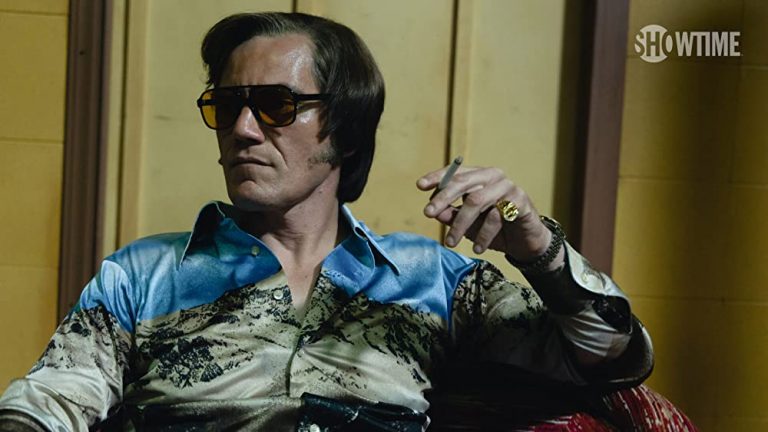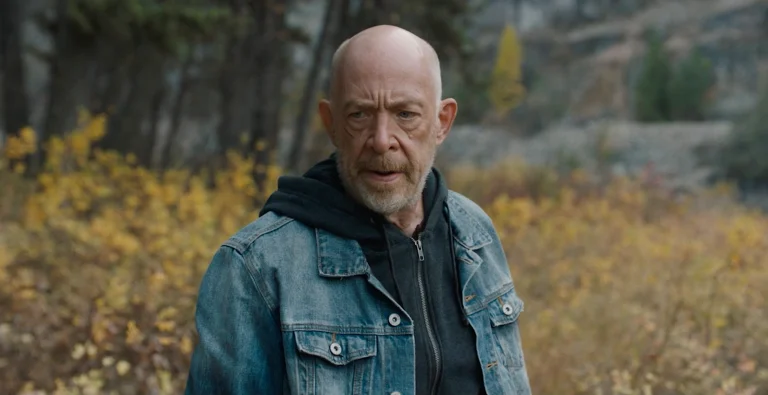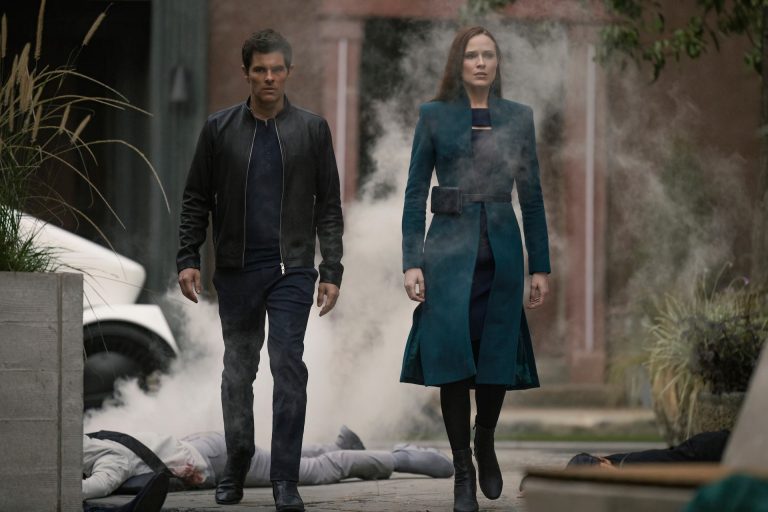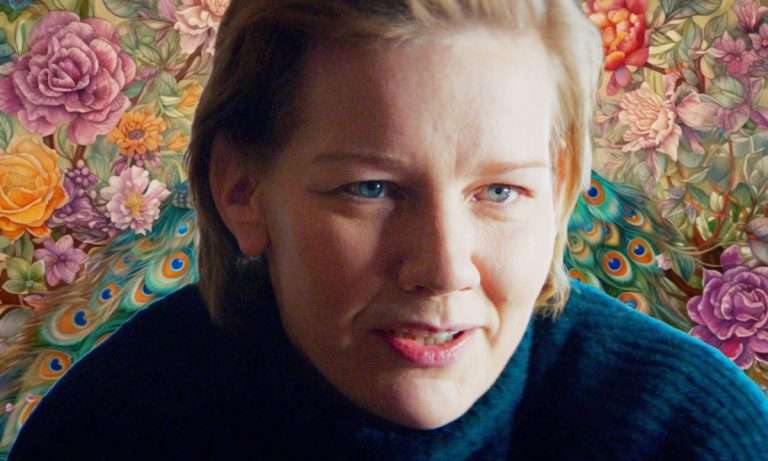Officially twenty five years old now, Danny Boyle’s dark comedy Transpotting (1996) is one of the most bewildering takes on drug addiction in contemporary Hollywood. It’s a bizarre and mildly hilarious journey through the life of a group of heroine junkies that explore the pandemic. Despite its apparently comic disposition, it’s rather authentic, and the horrors and other nuanced aspects come across and are depicted very well. And let’s not forget the Scottish accent which is quite as strong as the heroine these guys were taking and makes the experience interestingly exotic. The story is confoundedly straightforward, which is probably why it’s this effective too.
However, before the thing kicks off in earnest, there’s what is easily one of the funkiest but coolest opening sequences to any film. It’s possibly rivaled by cinematic classics, like Jean-Luc Godard’s Band of Outsiders to name one, which had an extremely captivating montage of facial close-ups. Coming back to Trainspotting, that opening montage is a literal sales pitch, from one junkie trying to peddle his goods. And he makes it sound so enticing, asking you if you’d rather choose this, that, and life, or just follow in his footsteps and live in permanent bliss.
Related Read to Trainspotting (1996): T2 Trainspotting (2017): An Acid Trip Down The Memory Lane
If you’re able to overcome the temptation to pause right there, and go look for some heroine, you’ll be welcomed by a younger and more Scottish Obi-Wan Kenobi, looking bald and lacking Force. That’s just momentary though, because we’re greeted by a sequence that makes you wonder if he does indeed have the Force. The yucky nature makes you nauseous, but if your mind isn’t too disgusted by the idea, you can appreciate the comic nature also. Plus, literally reaching the ocean and then returning from it looks cool, despite it requiring climbing into a public toilet full of shit.
It’s a truly baffling to wonder what might have brought on such an unfortunate nickname as Sick Boy. It gets clearer every time he talks that he does have a Sean Connery affliction, but I’m not sure you can call it a true sickness. It’s however even more baffling to try and figure out why the montage of three couples trying to have intercourse, and either succeeding, or failing, or not starting at all, is so engrossing. There’s a certain charm about the hypnotic nature of their life away from drugs. It’s inexplicably just as psychedelic as doing drugs itself.
Related Read to Trainspotting (1996): 3 Films That Accurately Portrayed Drug Addiction
And before the gross bedsheet tossing scene, that could scar some people’s breakfast eating for life, there’s the most obnoxiously humorous supporting character in the form of Begsbie. He is so vicious and despicable despite staying off drugs, you almost feel convinced drugs are better than trying to tackle life fully conscious. And yet, the vile ‘punk’ if I may call him, has an indescribable charm about him too. You’re glad you don’t know a Begsbie, but you wonder if life would have been much more fun to survive with this disturbing bastard and his hilarious anecdotes as your companion!
The bed-and-breakfast, pun intended, moment for Spud apparently shook not just us, but the protagonists too, as they decide they’ve had enough of abstinence. This would have been a great moment for ‘choose’ monologue part two, but we do get a pretty interesting lecture about why Scots could hate Scotland, instead. One very important thing that got lost in all this chaos, is that our soon-to-be Jedi master gets blackmailed into a purely carnal relationship by a minor, whose casting is an amazing choice. It’s her debut, and her role is relatively small, but she makes quite the impression really.
What follows is another masterfully composed montage, narrated by Ewan McGregor, whose character by now, has definitely become personally important to some of the viewers. Maybe some are disappointed or simply surprised at the decision to go back to heroine after what didn’t seem like very long. And yet, this is as honest as it gets. The manner in which you are constantly entertained while the true horror of what’s happening only grows in the back of the mind, is what defines Trainspotting. Observations of Sean Connery, teachings about why addicts respect the health department, are among things mentioned here.
And yet, just when you’re settling into understanding this is more comedy than dark, you’re hit with a truly sobering event that I won’t be mentioning to prevent spoilers. In case you have noticed, they are peppered throughout the article, but you still don’t feel like the film’s spoiled. Events henceforth are however much more essential, and as this is a review cum essay which tries to analyse the film as much as it tries to get you to watch it, they’ll not be mentioned in details. For those of you who’ve watched it, you know what I’m talking about.
Similar Read To Trainspotting (1996): Rocketman (2019): Satisfactory On Multiple Levels
After this starts the part which makes the film really memorable. To visualize getting high in such a manner that you’re literally watching the sunken feeling is literally a work of art. And the entire drug experience really, is so well expressed throughout, that it stays with you. Not necessarily in a good way, and many in similar conditions could be tempted to start taking drugs too. That’s precisely why you watch films to the end, because oftentimes the lesson is delivered then. It’s not an exception here either, and for those who sit through ninety minutes, learn a lot.
Two very noteworthy aspects of the film, that definitely deserve a lot of praise, are the cinematography and the soundtrack. The cinematography contributes immensely to the visually hypnotic aesthetic of Trainspotting, although a lot of the psychedelic nature can be attributed to the editing too. There’s one remarkable mirror shot you’re bound to remember forever, plus there is one amazing easter egg parallel involving four people crossing a road, that would make the day of any pop culture enthusiast. Apart from that, the spinning motions and the dragged out shots, all add to the simultaneously funny and disturbing visual experience.
Related Read to Trainspotting (1996): What Films Get Wrong About Drug Addiction
More than that however, is the contribution of the soundtrack. I think anyone who has taken drugs or has studied them, or like me, thinks they know drugs because they’ve watched films on them, will find it appealing. Hallucinatory would be too easy to use, for describing the selection of songs, but I’m still going with that. The songs are perfectly chosen for mood making, and just the soundtrack could make you feel high. Of course, you’ll have to take the real thing to genuinely feel it, but the songs go a long way. Each of them are perfectly chosen.
And while we’re on the subject of visualizing the experience of drugs, the movie also features an epic sequence that depicts the difficulties of detoxing. It’s a true nightmare of an experience, and if everything about the film seemed to be selling you drugs till then, that sequence definitely doesn’t. The editing is amazing, creating a bewildering blend of images and memories that convince you drugs are bad, specially getting addicted to them. A baby crawling, despite being such a cute sight in real life, has been historically used in cinema to induce horror and Trainspotting’s use is truly nightmarish.
Also, Read: 12 Films That Explore Mental Illness
As if a horrifying detox scene wasn’t harrowing enough, Ewan McGregor starts lecturing again, about why it’s better to be drugged. And yet, soon enough, the story takes such an amazing turn you start finding hope for the world and its citizens. After a meet and greet with the minor girlfriend, if that’s what we are to call her, his character starts showing signs of change. That’s not a spoiler, because you don’t even know what change that is! Anyway, we’re finally brought to Sherlock Holmes’ city, which, as expected, is depicted as a land of opportunity, especially for grifters.
And then the third act concludes this thoroughly enjoyable commentary on drugs and their effects, with a rather aggravating climax. Somehow, despite the visuals not really transforming from their hypnotic or gritty look, there’s a tonal shift in the narrative reflected by the camera-work. You can feel the lack of staying drugged, and that’s when you realize how brilliant the film is. Without realizing, every viewer has gotten a small firsthand experience of taking drugs, despite being involved in a third person perspective. And though the detox scene hadn’t seemed to be made for that purpose, it had done that.
Similar Read to Trainspotting (1996): Little Things (S3): An Important, Insightful Examination of Love and Relationships in Our Times
Totally opposed to the highly energetic, almost explosive and yet dreamy start to the film, the ending monologue comes with a calmer and yet much more conscious sequence. This iteration of the choose speech that doesn’t feature the word choose, is an acknowledgement of the detrimental effects of doing drugs. It’s also however, a small token of appreciation for those who succeed at rehab, or at least take the choice to follow the beaten path. Given the turn of events till now, you can’t obviously trust it, and Trainspotting ends on an ambiguous note, featuring McGregor walking ahead with intent.
Movies like Candy (2006) which featured Heath Ledger had a much more poignant take on the heroine pandemic. Candy especially was equal parts lazy and clinical, with a genuinely heartbreaking ending. And then there’s the horror movie Requiem for a Dream (2000). One of the best movies that no one watches twice, it gets much more personal and seems to be more effective. However, and this is why cynicism only takes you so far, life, despite being horrifying, is usually viewed through humorous lenses. Most people have senses of humour, and self-deprecating humour is a very powerful coping mechanism, especially for them.
Also, Read: Every Heath Ledger Performance Ranked
That’s precisely why Trainspotting works. Yes, it’s funny, it’s disgusting, it’s thrilling, it’s light-hearted, it’s joyous, it’s ‘dumb’ and it’s engrossing. It’s also memorable, and meaningful, and ingenious, and effective. Apparently you’ll fell grossed out but also have a gala time watching it, and won’t really be invited to ponder seriously. Yet, because of its hilarious disposition, it’s actually able to make you think more. Without letting you realize it, it’s slowly become personally meaningful while simultaneously depicting one shenanigan after the other. This very cleverly makes you take stock and spreads genuine awareness about the gravity of the situation.
To call Trainspotting subversive would be to practically nail it. As someone who appreciates cinema and its ability to bring change, I was pleasantly surprised by this method. It’s not new, but the medium is used clinically, not leaving a stone unturned. Depraved tomfoolery, horrifying imagery, yucky sequences, and harsh truths are peppered throughout the narrative. The comic buffer keeps you comfortable, but this subversion makes it easier to stomach. And yet it’s not flippant with the content at all. There’s an amazing sincerity about the film, despite the apparent insincere nature of the narrative, that’s a joy to experience.
In conclusion I’d like to say a few words. That’s all I’ve been doing till now, but this will be it. So, choose life. Choose reality. Choose optimism. Choose hope. Choose love. Choose growth. Choose progress. Choose empowerment. Choose yourself. Choose hobbies. Choose cinema. Choose drama. Choose humour. Choose Trainspotting.

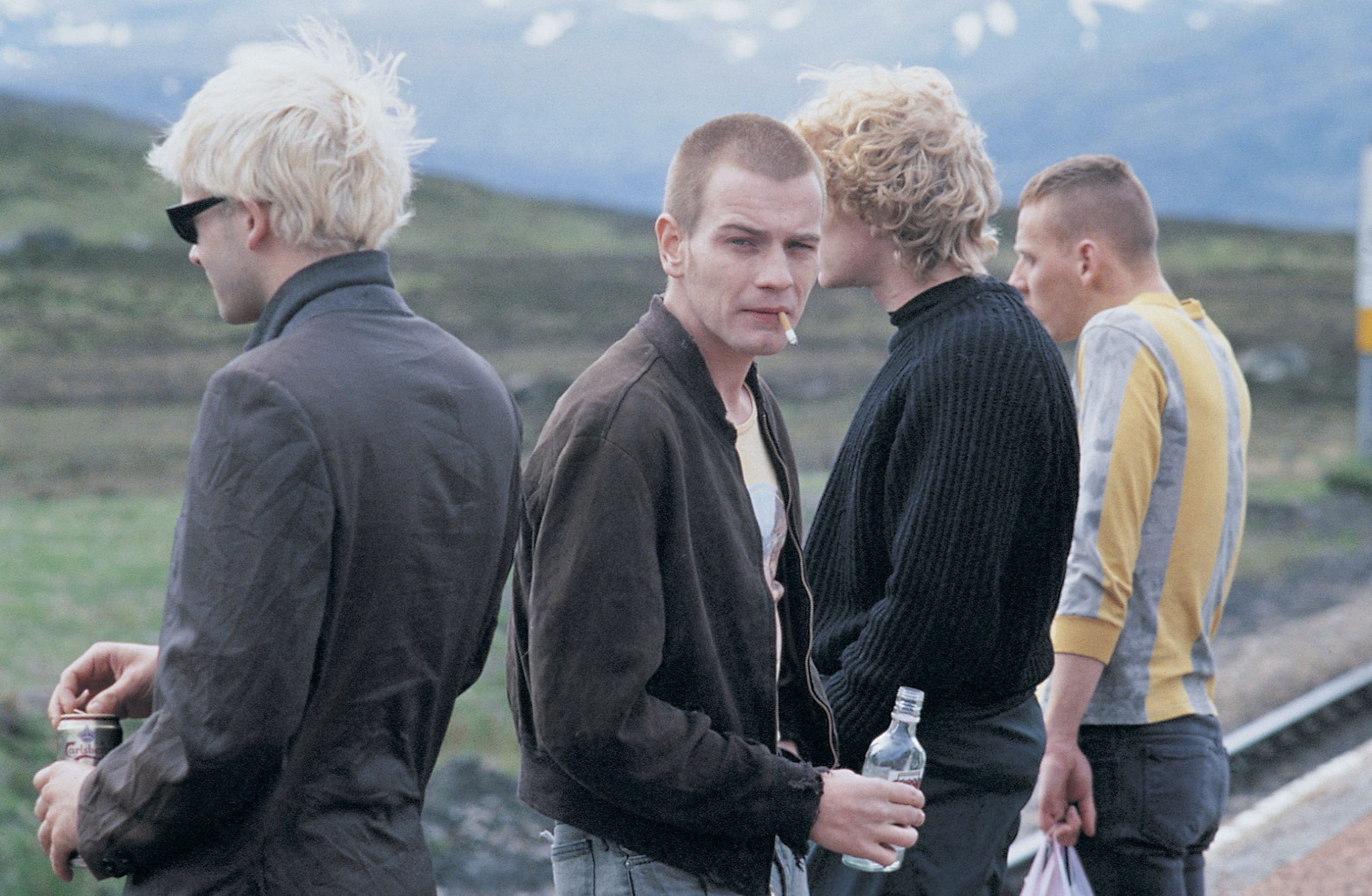
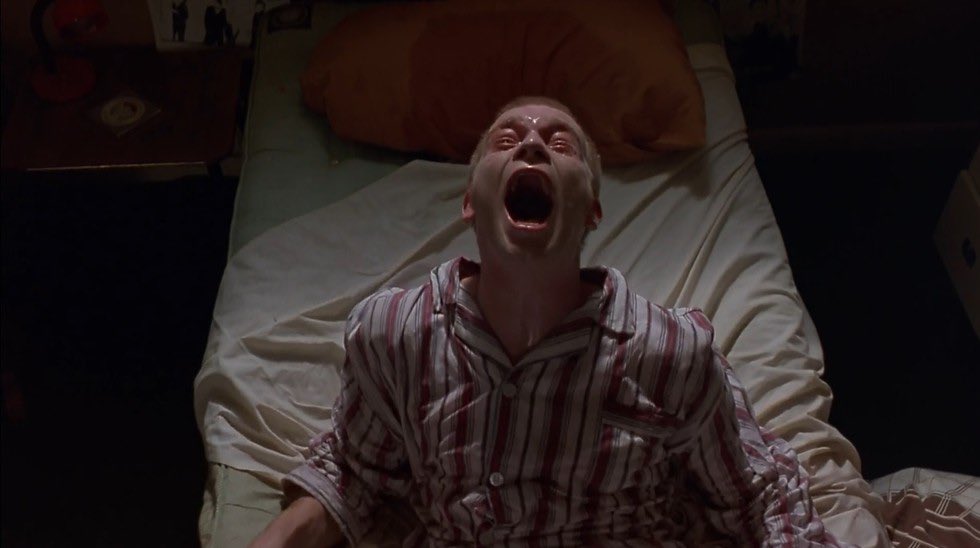
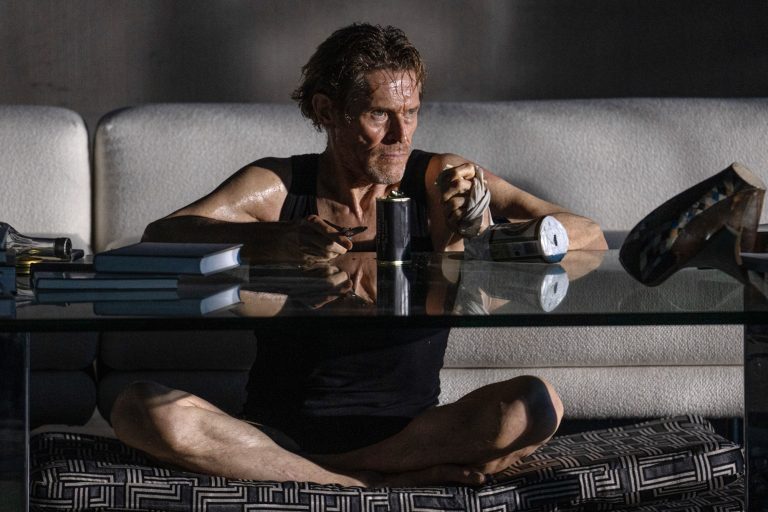
![Race: Bubba Wallace [2022] ‘Netflix’ Review: Series Provides a Microscopic View Into the Kaleidoscopic Life of an Athlete](https://79468c92.delivery.rocketcdn.me/wp-content/uploads/2022/02/Race-Bubba-Wallace-2022-768x432.jpg)
